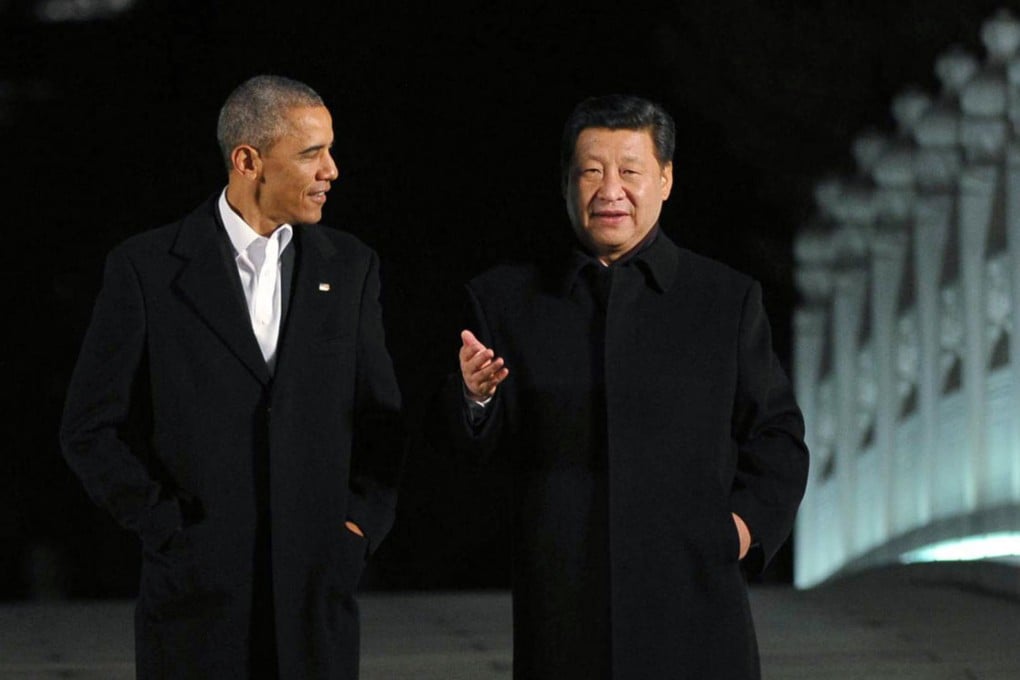Xi Jinping and Barack Obama walk down the path of history
Private stroll through former imperial garden gave Xi chance to tell Obama of the road to reform

They were likened more to two scholar friends than the leaders of the world's two most powerful nations during their private stroll through China's centuries-old imperial compound on a chilly autumn night this week.
US President Barack Obama arrived in Beijing on Monday at the invitation of President Xi Jinping for the Asia-Pacific Economic Cooperation (Apec) summit, as part of a state visit that finished on Wednesday.
Revealing some details of the conversation between Xi and his American guest during their informal summit on Tuesday, which included a private dinner, the People's Daily said Xi used the occasion to teach Obama something of Chinese history and the ups and downs of China's road to reform.
Implying that the relaxed talk in the grounds of Zhongnanhai was a triumph of diplomacy, the party mouthpiece described how the men were more keen to discuss history, culture and philosophy than the usual diplomatic topics.
Located next to the Forbidden City, Zhongnanhai was once an imperial garden that now serves as the centre of power for the Communist Party and central government. The walled leadership compound is known for its beautiful lakes, trees, fountains and temples.
During the stroll, Xi introduced to Obama to the history of Yingtai, an imperial palace on an island within Zhongnanhai. Xi said one needed to know China's modern history to understand the Chinese people's aspirations and the path they had chosen.
Built in the Ming dynasty, Yingtai is the former residence of several Qing dynasty emperors and has witnessed many historic events. Historical records suggest that the second Qing emperor, Kangxi (1654-1722), made the decision there to recover Taiwan from the Ming loyalists. And the young Qing emperor Guangxu (1871-1908) was imprisoned there by the Empress Dowager Cixi after the failure of his Reform Movement.